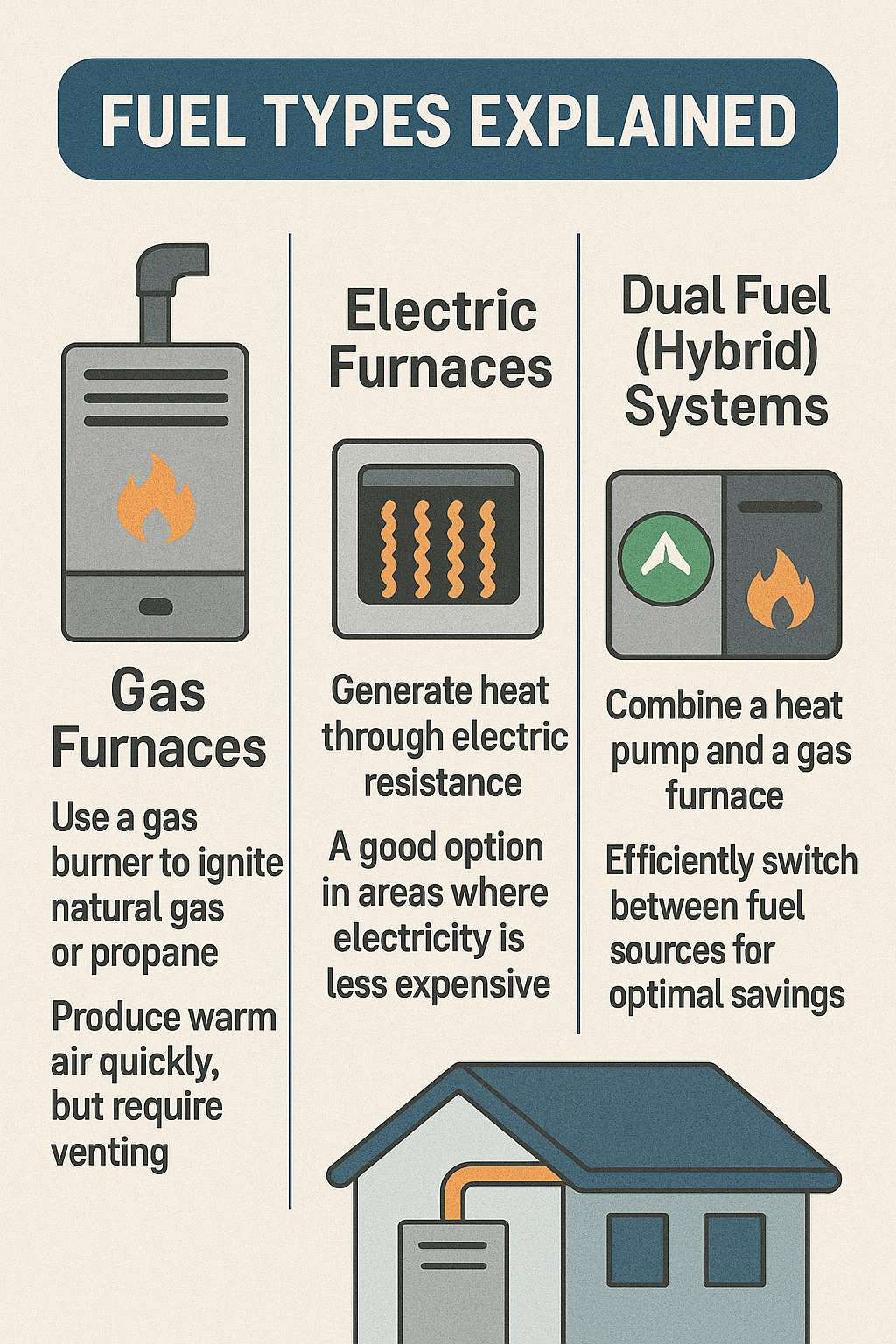Not sure whether gas, electric, or dual-fuel is right for your home?
This guide walks you through each furnace fuel type — how it works, where it performs best, and what to expect when it comes to cost, efficiency, and lifespan.
If you haven’t seen our full walkthrough yet, check out:
👉 How to Choose the Right Furnace
🔥 Gas Furnaces
Gas furnaces heat air by burning natural gas or propane. It’s the most common type across North America.
Best for:
-
Cold-weather regions
-
Homes already connected to a gas line
-
People wanting quick, powerful heat
What to know:
-
Most modern units are between 80%–98% efficient (see AFUE ratings)
-
Needs venting and a CO detector
-
Installation cost is a bit higher, but monthly bills are often lower if natural gas is cheap in your area
⚡ Electric Furnaces
Electric furnaces use resistance coils to warm air. No combustion, no fumes.
Best for:
-
Mild to moderate climates
-
Smaller homes or mobile homes
-
Areas without access to natural gas
What to know:
-
100% efficient — all electricity goes toward heating
-
No venting or gas hookup needed
-
Operating costs vary depending on local electricity rates (learn how rates affect you)
-
Lifespan: 20–30 years with minimal maintenance
♻️ Dual-Fuel Systems
Dual-fuel (aka hybrid systems) pair an electric heat pump with a gas furnace — switching between them automatically depending on the outdoor temperature.
Best for:
-
Regions with mild winters but occasional deep freezes
-
Homeowners focused on energy savings
-
Households open to a higher upfront cost for long-term payoff
What to know:
-
Uses electric heat pump during warmer temps
-
Switches to gas furnace when heat pump struggles
-
May qualify for federal tax credits or local rebates
-
Offers comfort and control in every season
💸 Fuel Type Comparison at a Glance
| Feature | Gas Furnace | Electric Furnace | Dual-Fuel System |
|---|---|---|---|
| Heating Strength | Powerful | Moderate | Balanced |
| Efficiency | 80–98% | 100% | Optimized switching |
| Upfront Cost | $$$ | $$ | $$$$ |
| Operating Cost | $ | $$–$$$ | $–$$ |
| Climate Fit | Cold | Mild | Variable |
| Lifespan | 15–20 yrs | 20–30 yrs | ~20–25 yrs |
❓ FAQs: Fuel Type Decisions
1. Is electric cheaper than gas?
Upfront, yes. But long-term costs depend on your utility rates.
2. Are gas furnaces safe?
Absolutely — as long as they’re properly vented and you have a working CO detector.
3. What's the benefit of a dual-fuel system?
It automatically switches to the most efficient heating method based on the weather.
4. Do dual-fuel systems work in freezing temps?
Yes — they switch to gas when the heat pump can’t keep up.
5. Can I convert from gas to electric?
Yes, but it may require some wiring and a change in ductwork.
6. Are there rebates for hybrid furnaces?
Most states and utilities offer incentives for energy-efficient systems.
🔗 Internal Link Navigation







